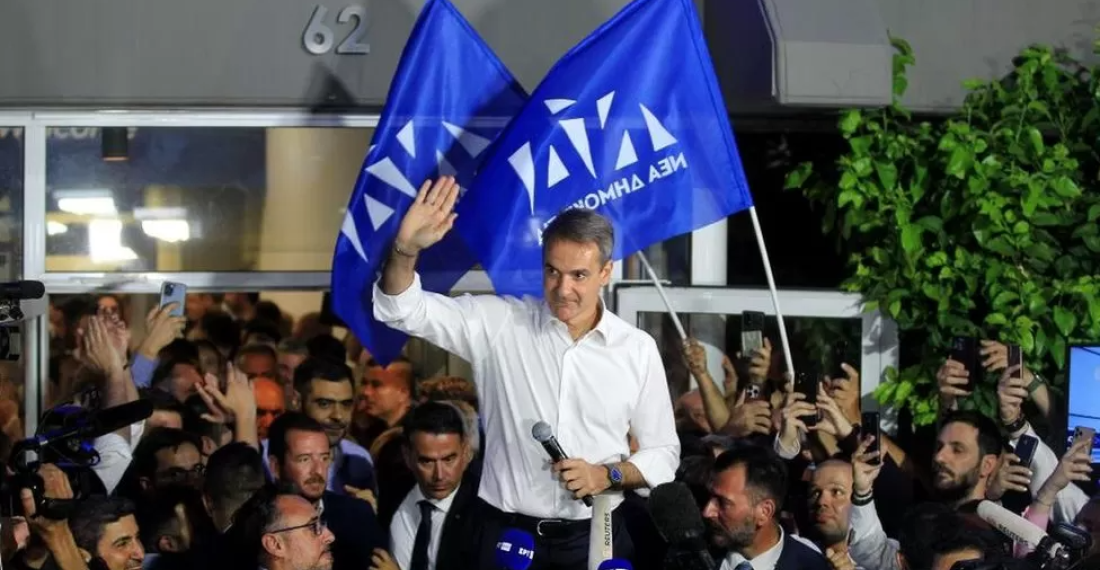The Greek centre-right New Democracy party has convincingly won the second national election in a month in a result that will see the new far-right Spartans party enter parliament for the first time. The vote took place on Sunday (25 June).
Last month, New Democracy, led by Kyriakos Mitsotakis, fell just short of a majority in the 300-seat parliament in the first election. Mitsotakis then called a snap election in a bid to form a stable, single-party government, and has come out winning 158 seats. This is 12 more than last time, and critically gives his party a majority in parliament. New Democracy won around 40.5% of the vote.
Meanwhile, the centre-left rival Syriza party, led by former Greek Prime Minister Alexis Tsipras won only 48 seats with just under 18% of the vote. This is down from 71 seats and 20% of the vote last election.
The newly-created far-right Spartans party were one of the main success stories of the night, who will be entering parliament on 12 seats with 4.6% of the vote.
Speaking to supporters in Athens, Mitsotakis said "New Democracy is today the most powerful centre-right party in Europe." As results were being announced, Mitsotakis had also said "the people have given us a safe majority [...] major reforms will go ahead quickly."
Tsipras commented however that "the emergence of three far-right parties in Parliament, one of which has fascist extensions and connections, combined with the majority of Mr Mitsotakis' right, is a negative development."
The Greek election came amid public anger over a crowded migrant boat that capsized off the coast of Greece on 14 June, in which hundreds of migrants from Pakistan, Egypt, Syria and other countries died. Destined for Italy, the boat had sailed from Tobruk, Libya.







